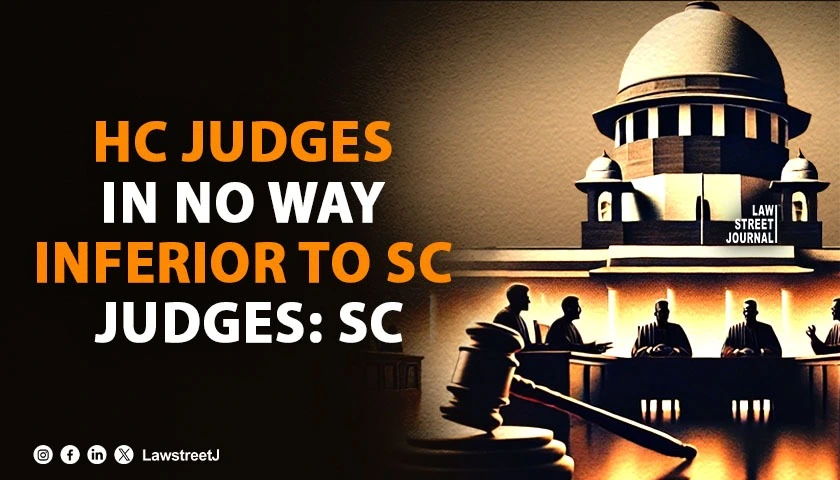NEW DELHI: The Supreme Court on Monday directed a litigant and his lawyers to tender an unconditional apology to a Telangana High Court judge for their “scurrilous allegations”, emphasising that the High Court judges were “in no way inferior" to the ones in the top court.
A bench of Chief Justice B R Gavai and Justices K Vinod Chandran and Atul S Chandurkar also deprecated the practice among lawyers to criticise the judges.
“We have noticed that nowadays it has become a trend amongst the lawyers to criticise the judges of the high courts and trial courts for no reason. It has also become a trend that whenever a political figure is involved in state, it is perceived that the petitioner has not got justice and seeks transfer," the bench said.
The court stressed that the judges of the High Courts enjoyed the same immunity as judges of the Supreme Court.
The bench said under the constitutional scheme, High Court judges were "in no way inferior" to judges in the Supreme Court.
"Though judges of the Supreme Court can modify the decisions of the judges of High Courts, it has no administrative control over the judges of the high court,” the court said.
On August 4, a separate bench directed removal of Justice Prashant Kumar of the Allahabad High Court from criminal roster till his retirement and make him sit with a senior judge in division bench in view of his order allowing criminal proceedings in a civil dispute.
On August 8, the bench deleted the directions on a request by the CJI but maintained the order for immediate withdrawal of criminal jurisdiction from Justice Kumar.
In the present matter, the court was dealing with a suo motu contempt petition initiated on July 29, 2025 against N Peddi Raju, for he had alleged bias and impropriety against the High Court judge who quashed a criminal case under the SC/ST Act against Telangana Chief Minister A Revanth Reddy.
In view of “unconditional and unreserved apology” tendered by senior advocate Sanjay Hegde on behalf of the alleged contemnor, the bench said, it should be filed within a week before the High Court judge concerned, who would take a call on it within a week thereafter.
Disclaimer: This content is produced and published by LawStreet Journal Media for informational purposes only and does not constitute legal advice. The views expressed are independent of any legal practice of the individuals involved.

















